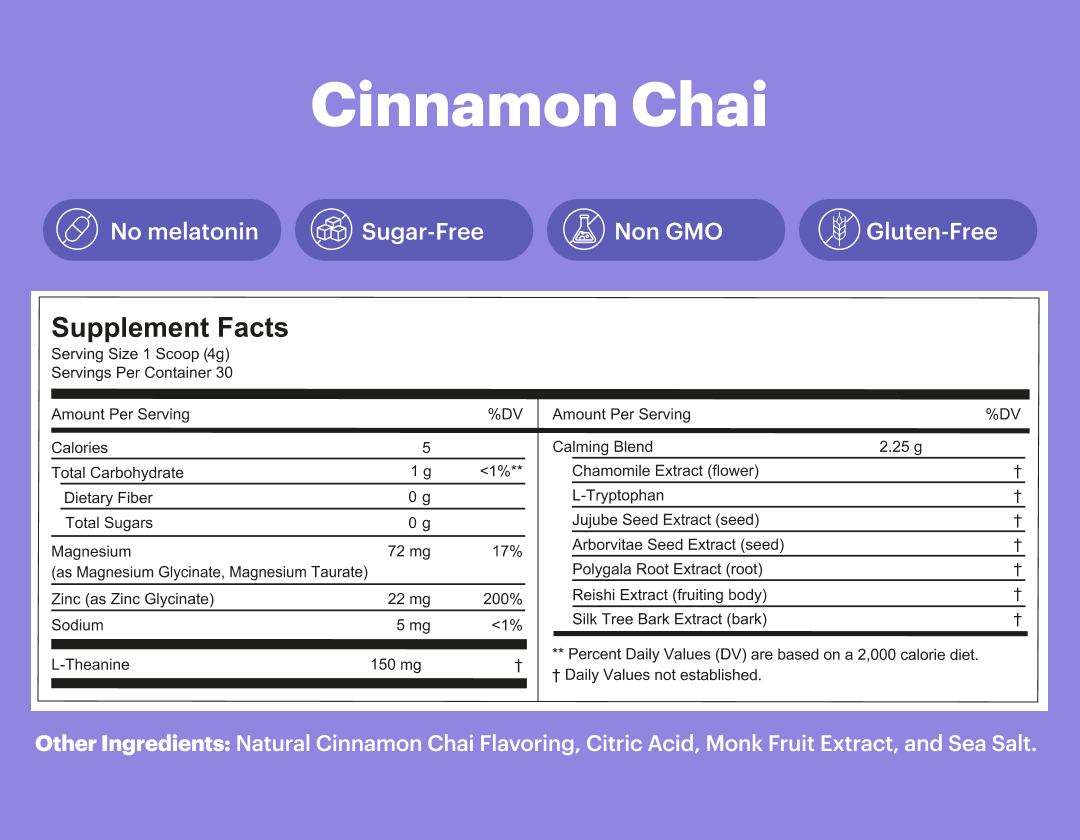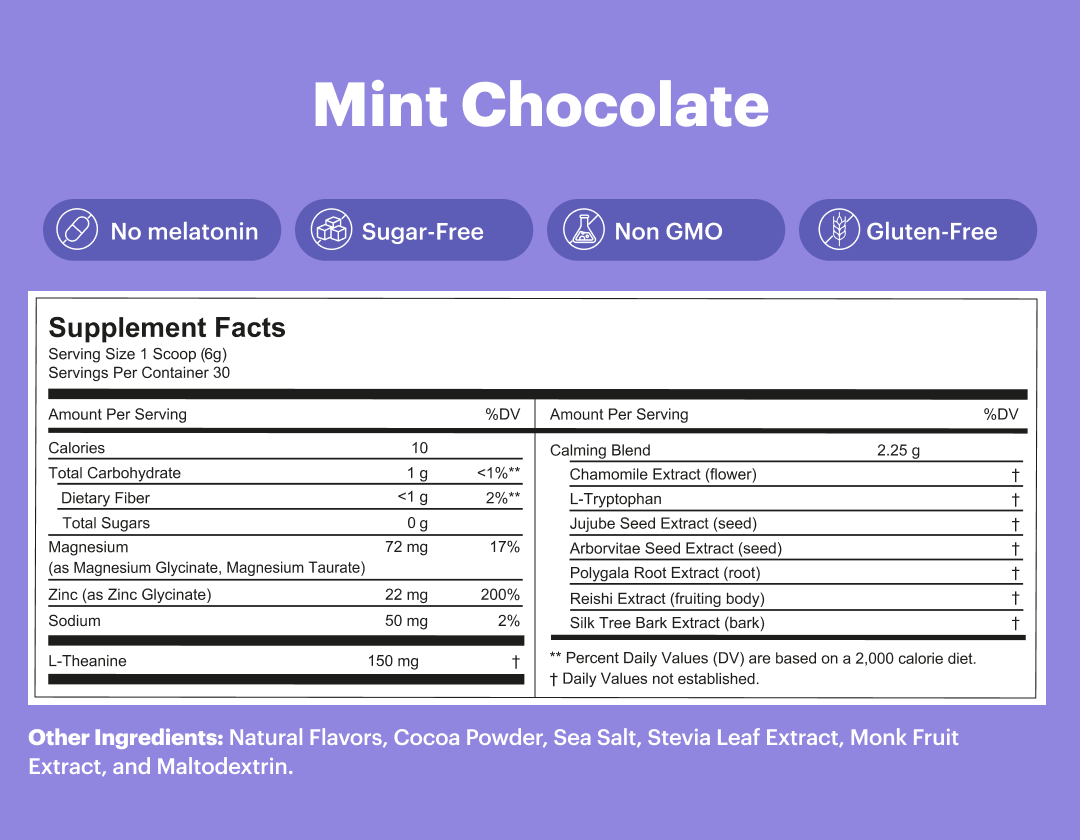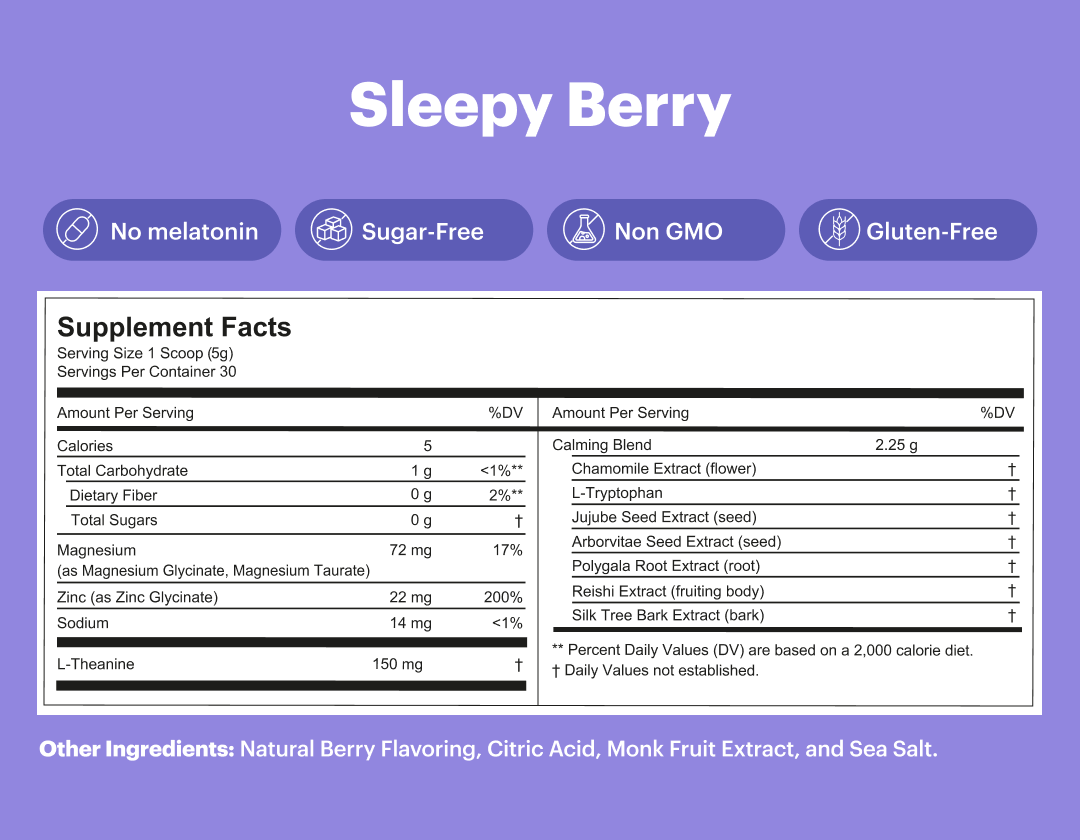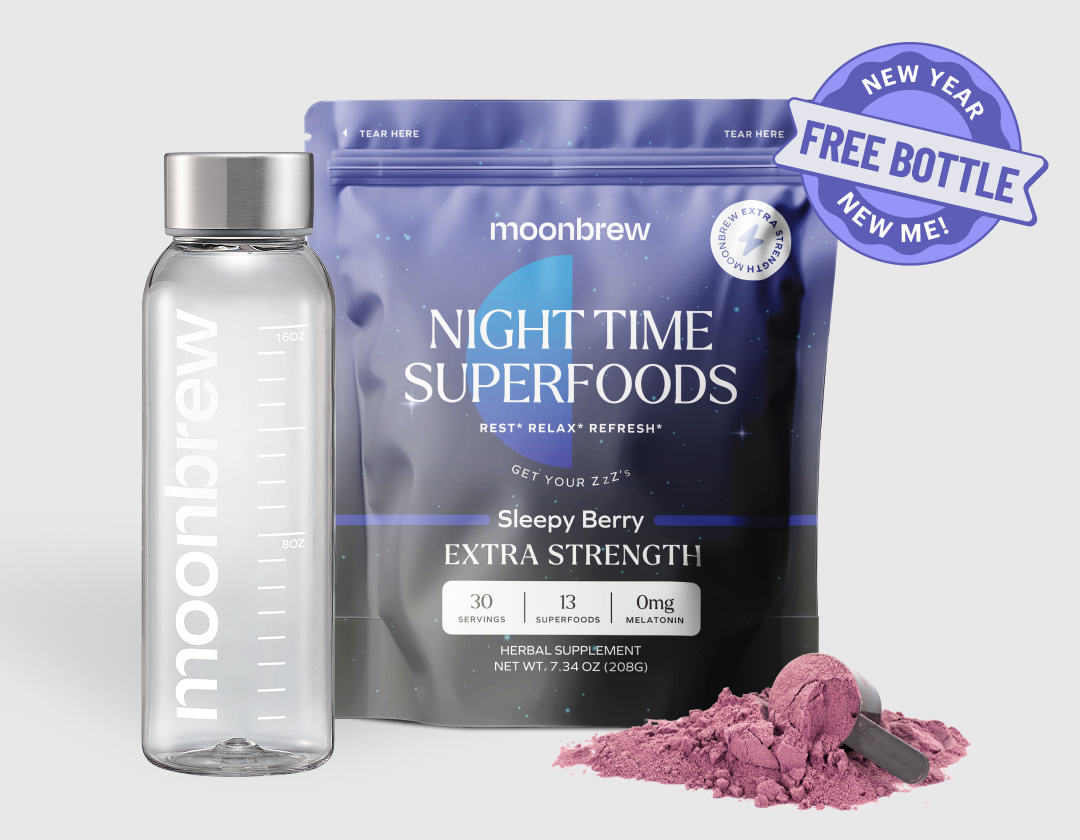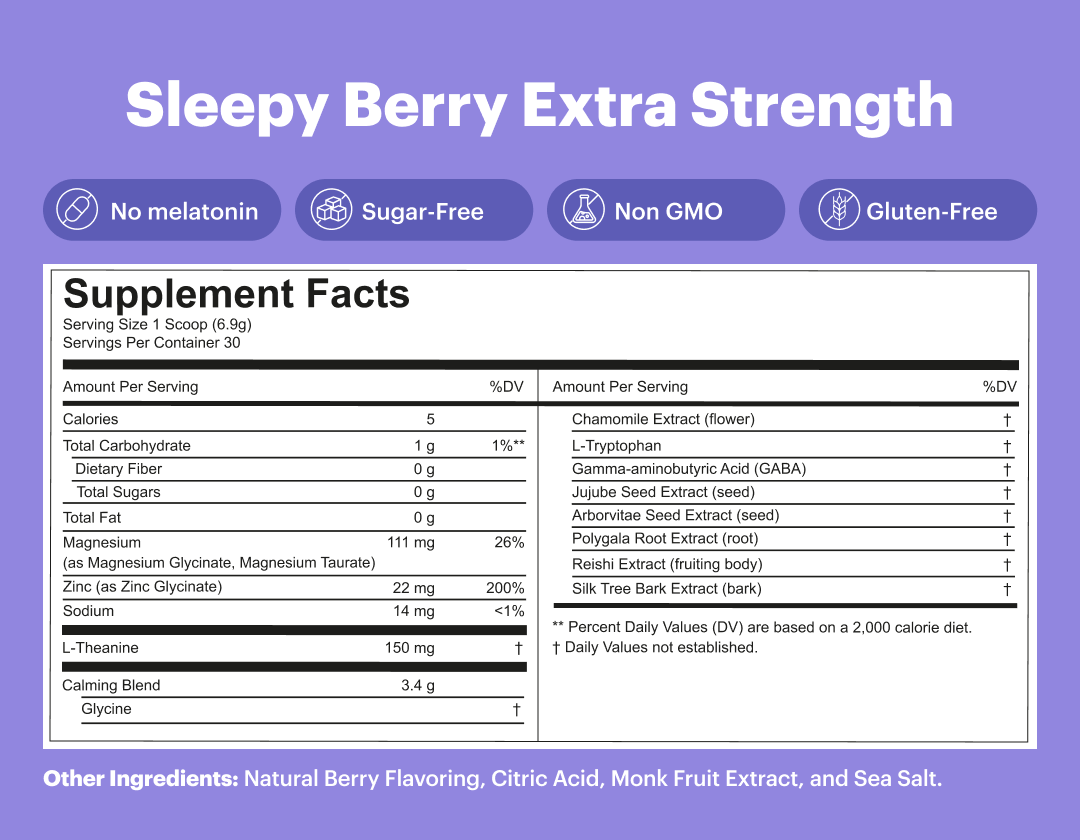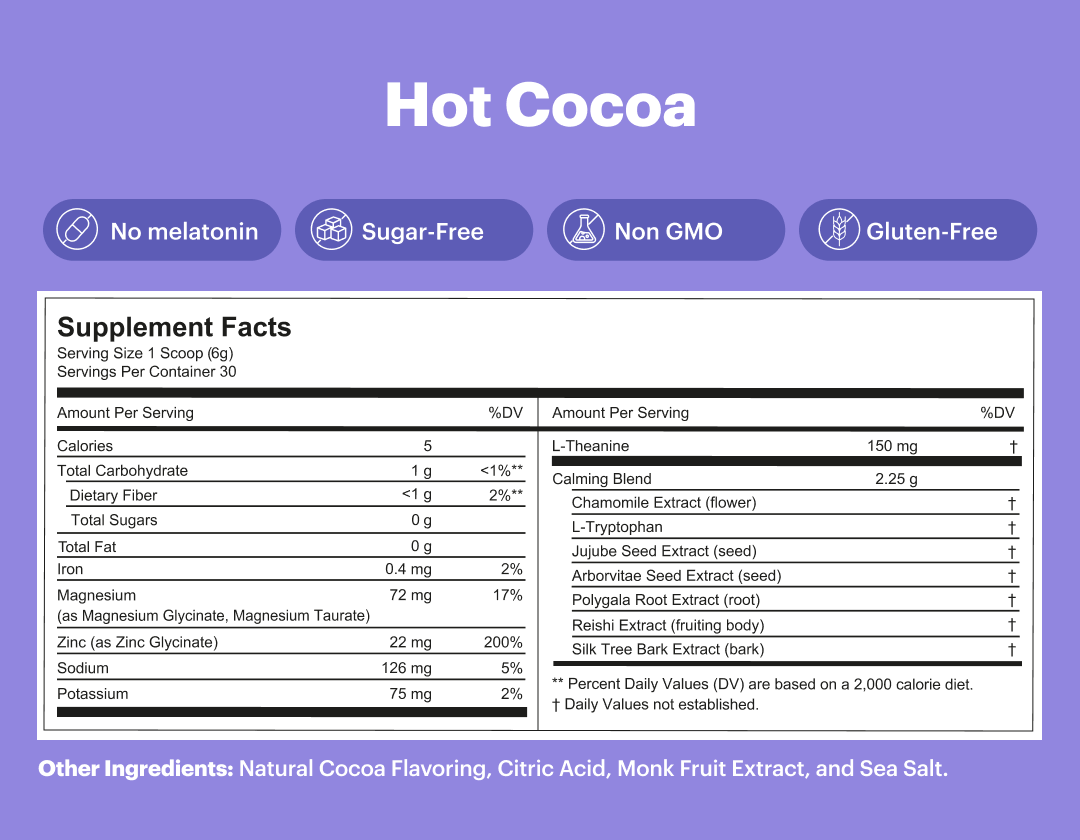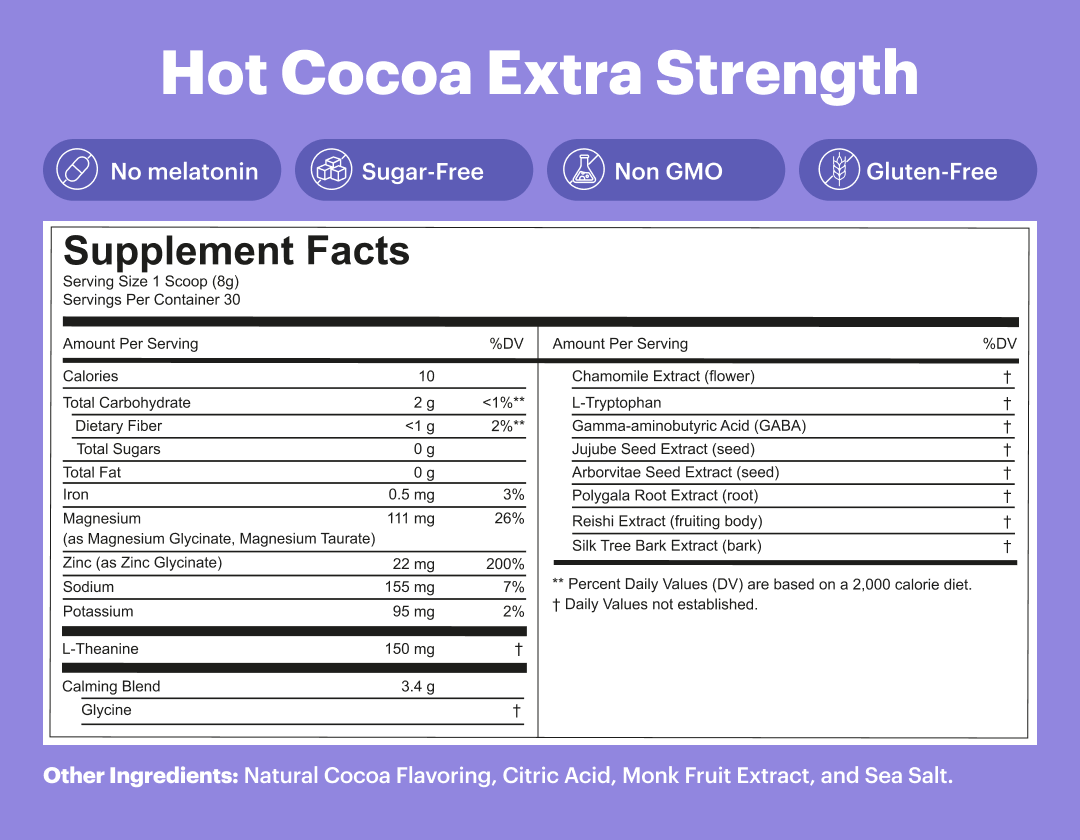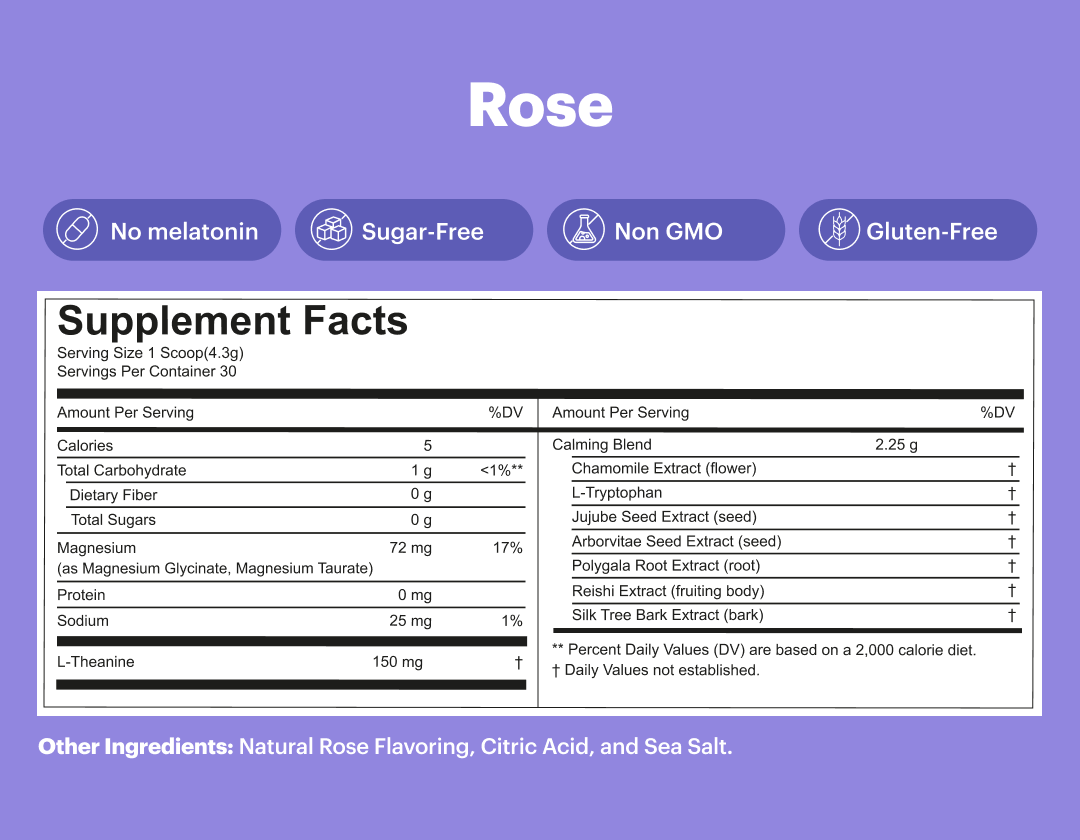


































The Magnesium Sleep Aid
4.8
9,710 reviews
The best alternative to melatonin and sleeping pills that combines magnesium and 11 superfoods to help you fall asleep, stay asleep, and wake up feeling refreshed.
The Magnesium Sleep Aid
4.8
16,010 reviews
The best alternative to melatonin and sleeping pills that combines magnesium and 11 superfoods to help you fall asleep, stay asleep, and wake up feeling refreshed.
MoonBrew Rose
4.8
5002 reviews
The best alternative to melatonin and sleeping pills that combines magnesium and 11 superfoods to help you fall asleep, stay asleep, and wake up feeling refreshed.
MoonBrew Sleepy Berry
4.8
5002 reviews
The best alternative to melatonin and sleeping pills that combines magnesium and 11 superfoods to help you fall asleep, stay asleep, and wake up feeling refreshed.
MoonBrew Hot Cocoa
4.8
5002 reviews
The best alternative to melatonin and sleeping pills that combines magnesium and 11 superfoods to help you fall asleep, stay asleep, and wake up feeling refreshed.
75k+ packs bought in past month
1. Select your flavors

Mint Chocolate
(New Flavor)

Hot Cocoa
(Best Seller)

Cinnamon Chai

Sleepy Berry

Rose

Hot Cocoa

Rose
2. Select strength
2. Purchase type
Pack of 1 - Ships every 30 days
Free Shipping | 60 day money back guarantee

Free Shipping On Subscriptions

60-day Money Back Guarantee

250,000+ Happy Customers
2. Select strength
2. Purchase type
Pack of 1 - Ships every 30 days
Free Shipping | 60 Day money back guarantee

Free Shipping On Subscriptions

60-day Money Back Guarantee

250,000+ Happy Customers
2. Select strength
3. Purchase type
Pack of 1 - Ships every 30 days

Free Shipping On Subscriptions

60-day Money Back Guarantee

250,000+ Happy Customers
2. Select strength
3. Purchase type
Pack of 1 - Ships every 30 days
Free Shipping | 60 day money back guarantee

Free Shipping On Subscriptions

60-day Money Back Guarantee

250,000+ Happy Customers
2. Select strength
3. Purchase type
Pack of 1 - Ships every 30 days
Free Shipping | 60 day money back guarantee

Free Shipping On Subscriptions

60-day Money Back Guarantee

250,000+ Happy Customers

Free Shipping Orders $60+

60-day Money Back Guarantee

250,000+ Happy Customers
Your best sleep is estimated to arrive: Sun, April 06. Order within 00:00:00
Fall asleep. Stay Asleep.
MoonBrew uses the top superfoods and magnesium blends to help you get the best sleep of your life.

Formulated by Dr. Shen, one of the top herbalists in California.

Made with the 2 best Magnesiums for sleep (Glycinate and Taurate).

Does not contain Melatonin (so you can drink it nightly).

Made with the 2 best Magnesiums for sleep (Glycinate and Taurate).

3rd party lab tested and screened for heavy metals.

If you check any of these boxes, you can benefit from drinking MoonBrew*:
1. You wake up still tired in the morning
2. You take longer than 20 minutes to fall asleep
3. You feel stressed at night before bed
4. You wake up multiple times throughout the night
*MoonBrew Extra Strength is for people who have long-term problems with sleeping.

No Melatonin

Sugar-Free

Gluten-Free

Keto Friendly

Vegan

Non GMO
Is MoonBrew for you?
If you check any of these boxes, you can benefit from drinking MoonBrew*:
1. You wake up still tired in the morning
2. You take longer than 20 minutes to fall asleep
3. You feel stressed at night before bed
4. You wake up multiple times throughout the night
*MoonBrew Extra Strength is for people who have long-term problems with sleeping.
How does it taste?
Sleepy Berry: A delicious, smooth berry flavor that will be a fan favorite for anyone who enjoys herbal fruity teas.
Hot Cocoa: A delicious, rich chocolate flavor that'll satisfy your dessert cravings.
It also has 0g of sugar and it's low calorie so you can feel good drinking it each night.
Rose: MoonBrew Rose has a light, subtle, and floral Rose flavored taste.
How to make MoonBrew?
You can enjoy MoonBrew hot or cold and make it in under 30 seconds. Just scoop a teaspoon of MoonBrew and drop it in 8 ounces of hot or cold water. Shake, stir, or froth until fully dissolved.

No Melatonin

Sugar-Free

Gluten-Free

Keto Friendly

Vegan

Non GMO

The Magnesium Sleep Aid
Enjoy a blend of 11 superfoods and adaptogens designed to help you fall asleep, stay asleep, and wake up well-rested.

Did you know up to 75% of adults in the U.S. are deficient in magnesium according to the World Health Organization? This can lead to high cortisol, daytime fatigue, sleeping problems, and more.
Sharing Love From 250,000+ Customers
Sharing Love From 250,000+ Customers
How MoonBrew Compares
Melatonin can leave you groggy, tired in the mornings, and isn't meant to be taken every night. Here’s how MoonBrew is different:



Other
Other Sleep Aids
Made with 11 natural superfoods


No hangover effect the morning after


No dependency


Designed for long-term use


Includes magnesium for better sleep


Common Questions
Common Questions
We offer a 60-day, full money back guarantee. If you're not satisfied, just email us at hi@moonbrew.co and we'll take care of you.
What are the benefits of MoonBrew?
MoonBrew contains an all-star roster of magnesium, superfoods & adaptogens designed to help you feel calm before bed, enhance deep & REM sleep*, and wake up refreshed. It was developed in part by one of the top acupuncturists in San Francisco and uses a blend of botanicals and vital minerals that you won’t find in any other nighttime sleep aid.
How does MoonBrew affect my sleep?
Immediately, MoonBrew helps relax your mind and body to help you fall asleep easier. As you take MoonBrew regularly, you’ll notice that you’re waking up less throughout the night and will feel more refreshed when you wake up. This will help you get out of bed in the mornings and be ready to take on the day.
We typically see customers have an easier time falling asleep within their first week of incorporating MoonBrew into their nighttime routine. Once customers reach the 2-4 week stage of drinking consistently, they typically see broader improvements to their sleep cycles.
What are the added benefits of MoonBrew Extra Strength?
While our Regular strength blend has all the core superfood ingredients you need to get a quality night sleep; our Extra Strength blend has a few bonus ingredients to pack an extra punch.
GABA and Glycine are added to our Extra Strength formula, as they have been shown in studies to help individuals fall asleep faster and reach deep sleep more quickly*.
How much magnesium is in MoonBrew?
Moonbrew has 72mg of elemental Magnesium, which is about 20% of your daily value. We use a combination of Magnesium Glycinate and Taurate to maximize your body’s ability to absorb it. Combining Magnesium with other superfood ingredients like l-theanine, chamomile, and zinc, results in the strongest melatonin-free sleep aid.
Is there melatonin or caffeine in MoonBrew?
No! We intentionally stay away from both caffeine and melatonin to ensure you can enjoy Moonbrew nightly, with no side effects. While melatonin is generally considered safe for short-term usage, research on its safety over the long-term is limited. The omission of melatonin from our products means you can sip on your Moonbrew nightly and wake up without any morning grogginess.
How do I make MoonBrew?
There are many ways to enjoy MoonBrew! Similar to coffee, everyone has slightly different preferences.
If you like creamy drinks, we recommend preparing MoonBrew with hot or cold milk (dairy or non-dairy).
If you like drinks straight up, we recommend preparing with hot or cold water.
If you're somewhere in the middle, we recommend preparing your MoonBrew with a base of hot water and topping it off with some milk. Bonus points if you can froth it all up!
Check out our blog for more recipe inspo!
How does MoonBrew taste?
Every MoonBrew flavor is crafted to be deliciously indulgent while being completely sugar-free and packed with superfoods like L-theanine, reishi, and magnesium to help you relax and sleep better.
Hot Cocoa: A rich, indulgent chocolate flavor that tastes just like classic hot cocoa—without the sugar. It’s a nostalgic, guilt-free treat you can enjoy every night.
Mint Chocolate: a smooth, refreshing twist on classic hot cocoa, infused with a cool hint of mint for the perfect balance of indulgence and refreshment. It’s like a cozy cup of hot chocolate with a refreshing minty finish.
Cinnamon Chai: A warm and cozy chai with hints of cinnamon and cardamom, delivering a gently spiced, soothing flavor that feels like a comforting hug in a cup.
Sleepy Berry: A smooth, fruity blend with a refreshing berry flavor—perfect for those who love herbal teas with a naturally sweet twist.
Rose: A light and delicate floral flavor with subtle rose notes—never bitter, perfectly balanced, and smooth to the last sip. No sediments, just pure relaxation in every cup.
What is your return policy if I don't like it?
All orders are eligible for refund, return, or replacement within 60 days of the purchase date. Please just send us an email at hi@moonbrew.co and we’ll take care of you.
Where is MoonBrew made?
Our natural and organic ingredients are internationally sourced from high-quality suppliers across the world. They are produced in a GMP/FDA-compliant facility in North America and undergo independent third-party analysis.
Can you drink MoonBrew while pregnant?
We suggest consulting with your doctor or physician before making any changes to your diet while pregnant.
Reviews From 250,000+ Customers


